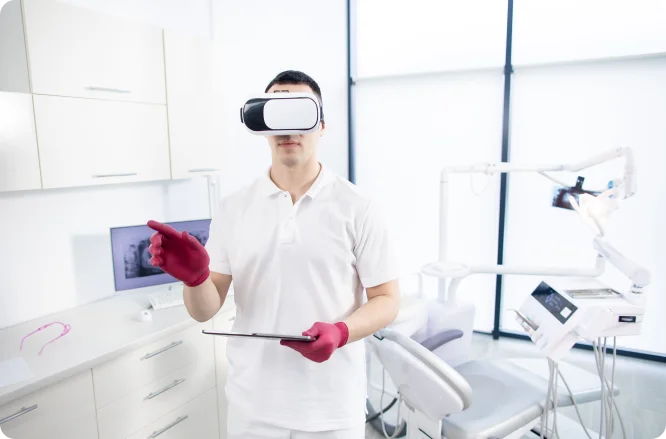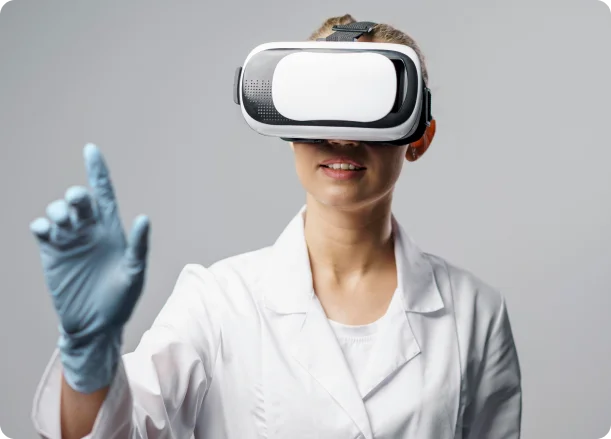Participants favored Virtual reality training more than desktop- training for a surgery planning
Virtual reality, often shorthanded as VR, has become mainstream in modern life. Initially, it was used just to enhance the gaming experience, but now it innovates healthcare to improve service providers’ offering and training purposes. VR provides a highly realistic environment and lets trainees be in a two-handed situation. Some other VR benefits are saving time and the ability to receive feedback about how well people are learning.
Due to these and various other factors, VR training is gaining popularity across a wide range of corporate entities, spanning from retail and manufacturing to healthcare and beyond. In a very recent cross-study published in “JMIR Serious Games,” researchers have designed an experiment to investigate the benefits of virtual reality training for oral maxillofacial surgery.

The study, accessible through this link JMIR Serious Games-Advantages of a Training Course for Surgical Planning in Virtual Reality for Oral and Maxillofacial Surgery: Crossover Study, presents an experience that trains six novices in both desktop screen (DS) and VR environments and compares the results.
The study demonstrated that VR training not only facilitates a more rapid learning process but also allows trainees to work more efficiently. Participants noted that the VR environment was faster and more intuitive, making it easier to grasp complex surgical concepts. Moreover, VR training proved less physically exhausting, a crucial factor in the demanding world of oral and maxillofacial surgery.

©2022 Implident. All Rights Reserved.
